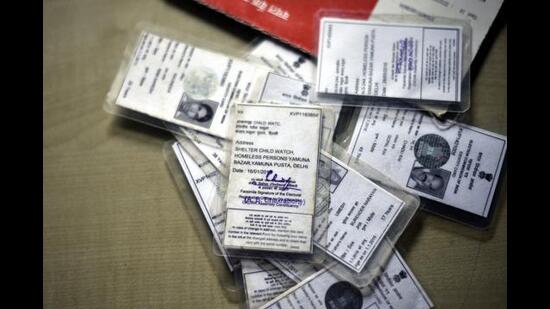More than 90% ‘duplicate’ EPICs replaced with unique identifiers: EC official
‘Duplicate’ EPICs refer to multiple electors with the same EPIC number, but they don’t imply ‘fake voters’ as the electors under this category have different demographic details, polling booths and assembly constituencies, officials said.
The Election Commission of India (ECI) has replaced more than 90% of the “duplicate” Elector Photo Identity Cards (EPICs) with unique identifiers, much before the three-month deadline set by the poll panel for the exercise, people familiar with the matter said, adding the remaining cards will also be replaced soon.

An ECI official requesting anonymity said they are currently holding review meetings to resolve certain interstate “duplicate” EPICs.
“We started carrying out the exercise on March 7 with a deadline of three months. Among more than 992 million registered voters, less than 500,000 have been flagged for ‘duplicate EPICs’—representing about 0.0005% of the total electorate. We have corrected more than 90% of the total duplicate EPICs,” the official said.
“Duplicate” EPICs refer to multiple electors with the same EPIC number, but they don’t imply “fake voters” as the electors under this category have different demographic details, polling booths and assembly constituencies, officials said.
The issue of duplication of EPICs was flagged by West Bengal’s ruling Trinamool Congress (TMC), following which the ECI sprang into action.
To be sure, the ECI is yet to begin corrective measures in repeat EPICs — or where multiple voter I-D cards have been given to the same elector, officials said. Though these may also be referred to as duplicate EPICs, the commission has decided otherwise.
“Multiple EPIC numbers assigned to the same person are not exactly duplicates, as the person may have shifted and obtained new EPIC cards without deleting old ones. Now, deletion is a very sensitive issue in the country, as any wrongful deletion could lead to continuous problems,” a second person familiar with the matter said, also declining to be named.
The ECI currently employs tools such as photographic similar entries (PSE) and demographically similar entries (DSE) for deletions. However, this has not been effective, as the scalability of this project has always been an issue for the poll body. To deal with this problem, ECI officials in the past have stated that Aadhaar linking will be done, and currently, technical consultations are ongoing between the Unique Identification Authority of India (UIDAI) and the Commission to establish a framework.
In addition, the Commission has, for the first time, begun training Booth Level Officers (BLOs) aiming at the annual Special Summary Revision exercise for updating electoral rolls, which takes place between October and December, with the final rolls being published in January.
A two-day workshop has been organised— on Wednesday and Thursday—for 109 BLOs from Bihar, West Bengal, and Assam, along with 24 Electoral Registration Officers and 13 District Election Officers from Bihar, West Bengal, Assam, Kerala, Puducherry, and Tamil Nadu, EC said in a statement.
“The training is planned to familiarise the BLOs with their roles and responsibilities…and the instructions of the Commission issued from time to time, and to equip them with the requirements of filling relevant forms for an error-free updating of electoral rolls,” it added.
Officials said there are more than 1.05 million BLOs, and moving forward, EC will train 100,000 BLOs so that they can serve as assembly-level trainers for other BLOs.
“If the BLOs are trained and motivated, then we will be able to delete shifted or deceased electors and reduce the number of repeat EPICs under this category,” an official said, declining to be named.





